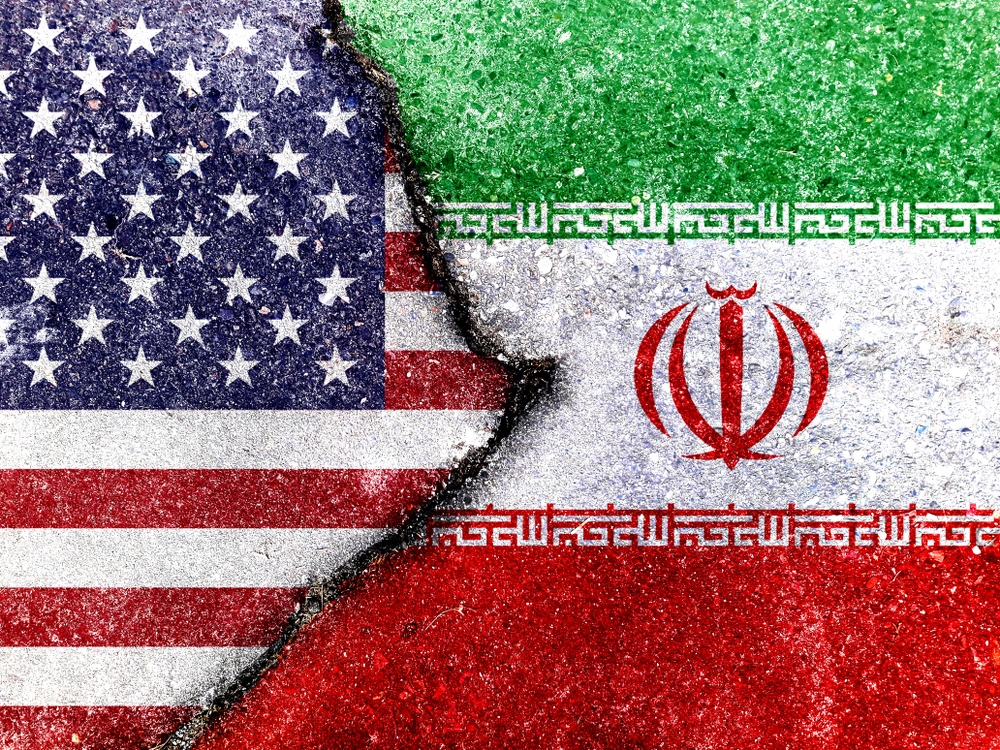Iran and the United States: Nuclear Argy Bargy

Since the 1979 Iranian Revolution, the United States and Israel have been zealous in their efforts to disempower it. Israel has used its powerful hasbara (propaganda) machine to peddle absurdities about Tehran as a nuclear threat to the region and the world. For refusing to bend to U.S.-Israeli demands to abandon the Palestinian cause and for standing against their hegemonic plans for the region, Iran has been the target of the most restrictive economic sanctions in history and under perpetual threat of military intervention. Like any sovereign nation, Iran has a right to defend itself. Nuclear weapons are a security guarantee that Iran has not sought. Unlike Israel and the United States, it has not threatened nor bombed, invaded or occupied its neighbors. However, after Israeli air strikes in April and October 2024 and continued U.S. threats, Iran has had no choice but to debate and reevaluate its long-held nuclear doctrine which regards weapons of mass destruction against Islam. In a civilized conflict-free world, there would be no need for weapons, nuclear or otherwise. Unfortunately for some countries, like Iran, possessing nuclear weapons may become a necessary tool for survival. For others, like the United States and Israel, the ghastly weapons are used as cudgels to bully countries into submission. It is important to establish that the U.S. intelligence community—the collective work of America’s 18 spy organizations – has determined that Iran is not developing nuclear weapons. It stated as much in its “Annual Threat Assessment of the U.S. Intelligence Community” 2024 report: “Iran is not currently undertaking the key nuclear weapons development activities necessary to produce a testable nuclear device.” Previous reports have also stated that Iran’s military doctrine is defensive and its nuclear program is meant to build negotiating leverage and to respond to perceived international pressure. The question then becomes why is it that the nuclear issue is front and center when the United States does engage with Iran and why has its program, in existence for more than four decades and intended for civilian energy/scientific purposes, been so falsely represented. Demonizing Iran has served the imperial interests of the United States and its military outpost Israel in the Middle East. Through the well financed aggressive propaganda efforts of Israeli lobby groups like the tactically benign sounding American Israel Public Affairs Committee (AIPAC), Tel Aviv has been successful in selling Washington, the corporate media and the American public on the provocative idea that Iran is a threat to it, the region and the United States. The narrative about Iran and its nuclear objectives is replete with myths and distortions. U.S. foreign policy decisions have been largely framed to protect and secure Israeli interests, often to the detriment of America’s own. A fettered Iran allows Israel unchallenged regional supremacy. Like former U.S. administrations, the Trump White House, in collaboration with Israel and their Arab allies, are determined to strip Iran of its revolutionary identity and undermine its regional clout. Iran has legitimate security interests and concerns, fully aware that it is the primary target of Israel’s military and nuclear arsenal. A 2025 Arms Control Association report reveals that Israel – the only nuclear weapons power in the Middle East – has an estimated 90 nuclear warheads with sophisticated delivery systems in its inventory, as well as the fissile material stockpiles for at least 200 nuclear weapons. Iran, on the other hand, is a threshold state. To achieve the weaponization stage, it would need to enrich uranium to 90 percent purity, weaponize the fissile material and develop the delivery systems. None have been done. Unlike Israel, Iran is a signatory to the 1968 U.N. Non-Proliferation Treaty. As such, it is prohibited from developing, acquiring or using nuclear weapons, although it does have the right to manufacture and enrich uranium for peaceful purposes. In addition, Iran’s leaders have vigorously pursued the establishment of a nuclear weapons-free zone for the region. There are a number of rational reasons for the Islamic Republic to go down the road toward acquiring nuclear weapons; principally, self-defense. Former Israeli Defense Minister Ehud Barak (2007-2013), in his memoirs, for example, reveals that the regime of then Prime Minister Benjamin Netanyahu came close to attacking Iran at least three times between 2010 and 2012. Barak stated that he and Netanyahu had pushed for military operations against Iranian facilities, but they backed down after opposition from their top security officials. Barak also discloses that he disagreed with Netanyahu that Iran’s nuclear program posed an existential threat to Israel. He was instead more concerned about the regional balance of power. Some in Iran’s political class, including Supreme Leader Ayatollah Ali Khamenei, suspect that the United States, Israel and their Arab allies are intent on overthrowing the Islamic Republic. Recent history confirms their suspicions. They point to crippling economic sanctions, covert operations, cyber attacks, assassination of nuclear scientists and military personnel, missile attacks and sabotage of gas pipelines and military sites. In July 2022, for example, during a visit to Israel, President Joe Biden signed a pledge to never allow Iran to acquire a nuclear weapon and to “…use all elements of its national power to ensure that outcome.” It is with that pledge and President Trump’s ultimatums that the United States has entered a new round of nuclear talks with Iran, currently underway. Strangely enough, it was Trump, encouraged by Netanyahu, who pulled out of the Joint Comprehensive Plan of Action (JCPOA) nuclear agreement in 2018 and imposed heavier “maximum pressure” sanctions, believing that economic hardships would drive Iranians to topple the government. Before the recent nuclear meetings began in early April, Trump threatened: “If they [Iran] don’t make a deal, there will be bombing. It will be bombing the likes of which they have never seen before.” In a show of force, in addition to two aircraft carriers in the Red Sea, the White House has deployed a squadron of fighter jets, stealth bombers, air defenses and large quantities of weapons to the Indian Ocean island of Diego Garcia. Also, Netanyahu, incapable of remaining silent, sounded off saying that the only nuclear deal Israel would accept would have Iran agreeing to eliminate its entire program. He further elaborated: “We go in, blow up the facilities and dismantle all the equipment, under American supervision and execution.” The Israeli newspaper, Haaretz, reported (17 April 2025) that Netanyahu recently sought the U.S. administration’s support to conduct joint commando and air strikes on Iranian nuclear sites. Trump, however, vetoed the plan while discussions with Tehran are ongoing. Netanyahu is clearly intent on derailing the negotiations to ensure that there will never be rapprochement between the U.S. and Iran. Except for a short interval during the Obama administration, when Iran and the P5+1 countries (China, France, Russia, U.K., U.S. plus Germany) finalized the JCPOA in 2015, the United States has leaned on a muscular military policy and has never been serious about engaging cooperatively with Iran. It has, however, been serious about ensuring Israel’s hegemony in the region. President Obama’s “new dawn for the Middle East” included moving away from years of failed policies, particularly “Clean Break: A New Strategy for Securing the Realm,” a 1996 initiative pushed by pro-Israel stalwarts and advanced during the George W. Bush administration. Following the attacks of 11 September 2001, Bush and Netanyahu set in motion the aggressive goals documented in “Clean Break” to contain, destabilize and overthrow governments that challenged U.S.-Israeli hegemony. Plans were drafted for military action against seven countries, starting with Iraq, then Syria, Lebanon, Libya, Somalia, Sudan and Iran. All but Iran have been destabilized and/or balkanized. Even though the relationship between Obama and Netanyahu was often strained, Obama’s actual record in office makes him one of the most pro-Israel presidents since Harry S. Truman. The scale of Israel’s barbarity in Gaza and the Occupied Palestinian Territories and its insatiable addiction to expansion and power forewarns Iran and other actors in the Middle East that they must be vigilant in their defense to survive. Netanyahu’s jingoistic vision of Zionist Israeli supremacy has never changed. Ten years ago, he bluntly told an Israeli parliamentary committee that there could never be peace with the Palestinians: “I’m asked if we will forever live by the sword,” and I say “yes.” Israel may not be visibly present at the nuclear negotiating table; its influence over the outcome is, however, palpable and discernible. What Washington and Tel Aviv fail to understand is that they are dealing with a politically astute country, that deserves the respect it demands as a nation that has resisted colonizers and colonization throughout its 5,000-year history in West Asia. No amount of absurdities – American or Israeli – can change that reality. Reprinted with permission from ZNetwork. Dr. M. Reza Behnam is a political scientist who specializes in comparative politics, with a focus on West Asia.










![On this day in history, in 1993, the World Wide Web launched into the public domain. While on the one hand this event cemented the downfall of human civilization, at least it made porn easy to find [Vintage]](https://img.fark.net/images/2013/site/farkLogo2Big.gif)







